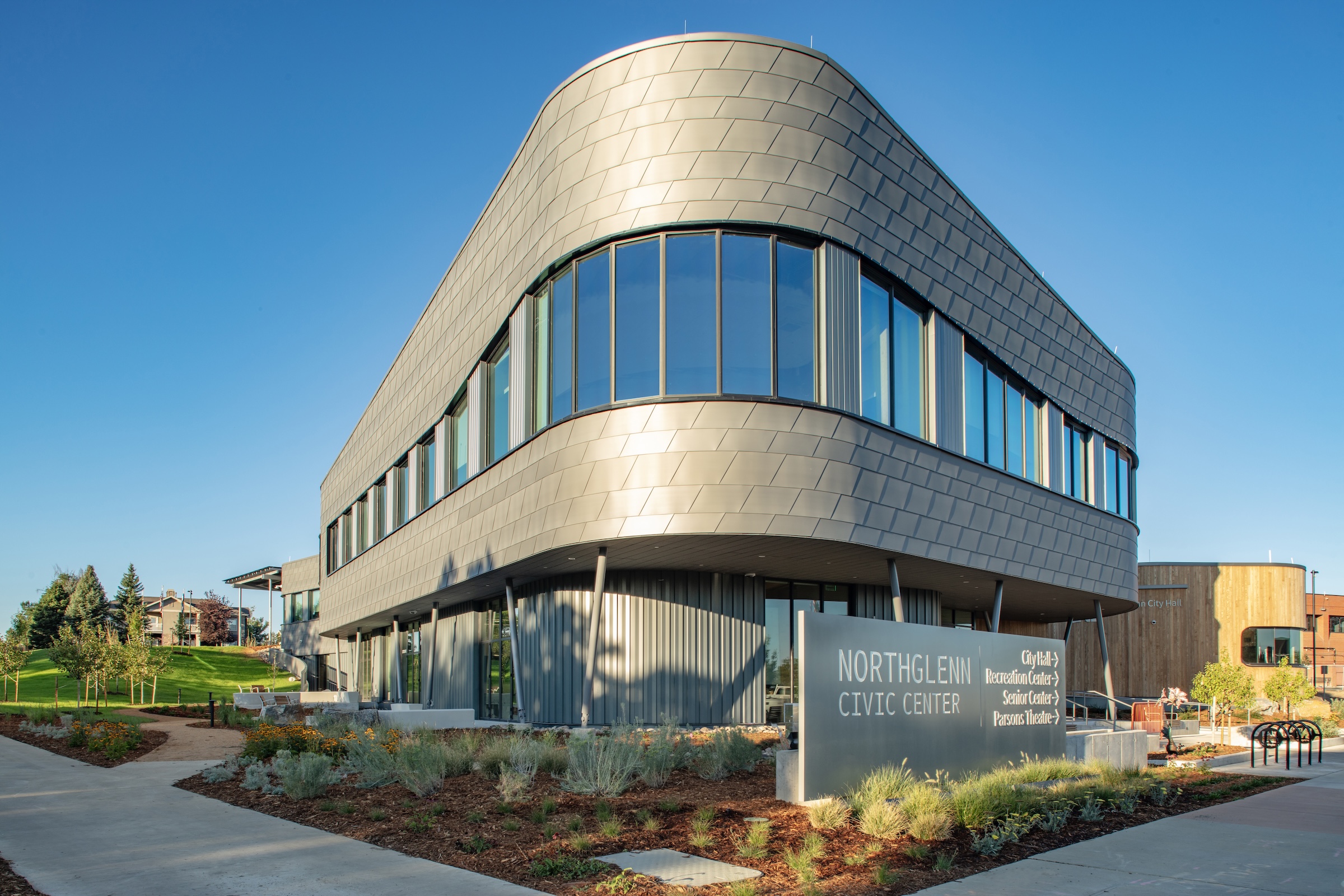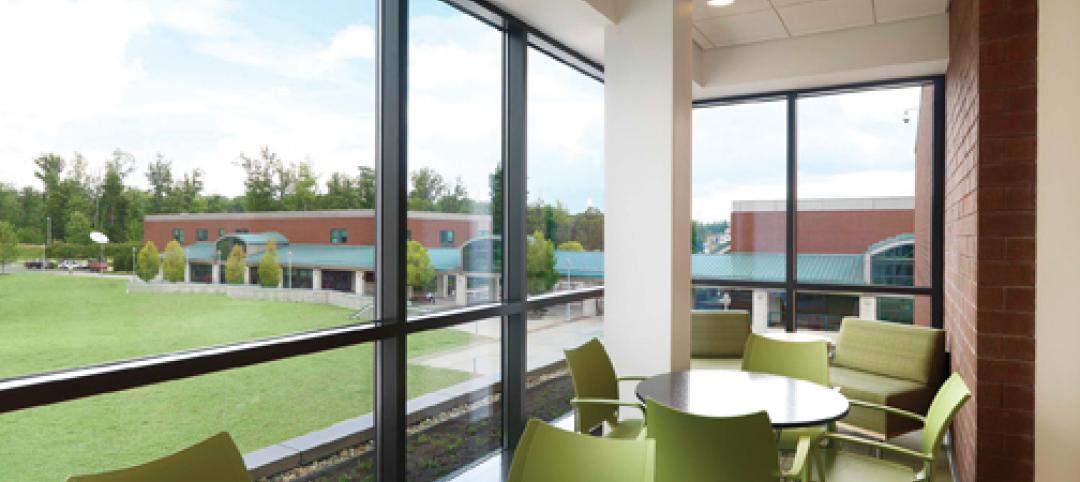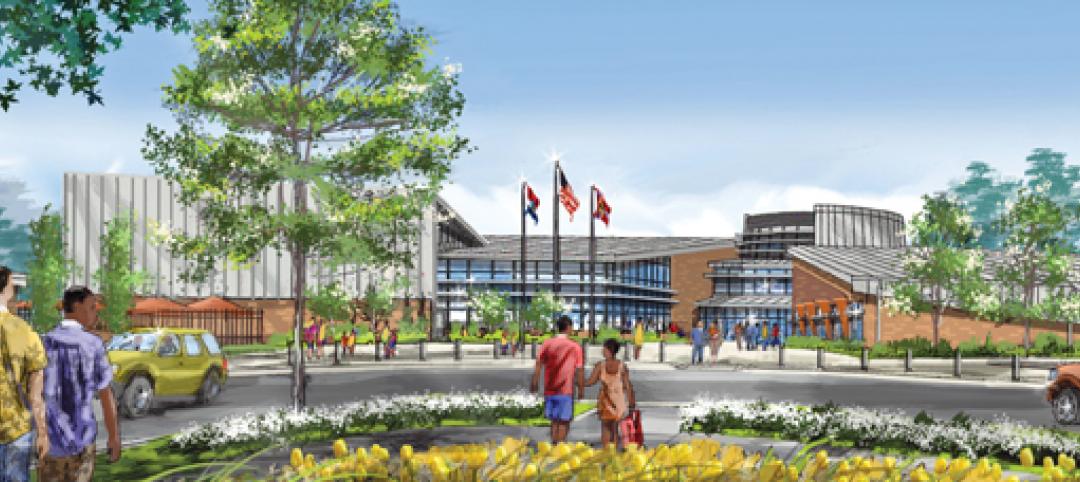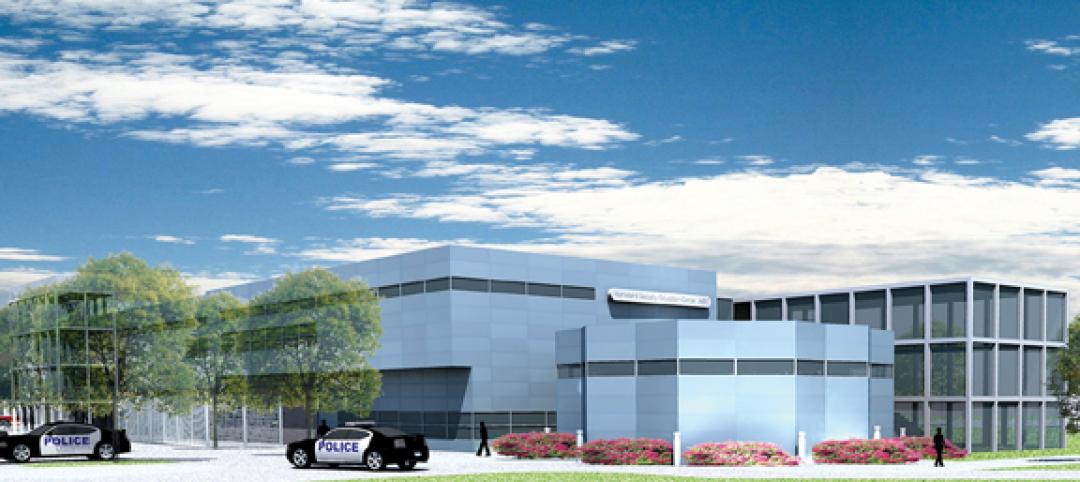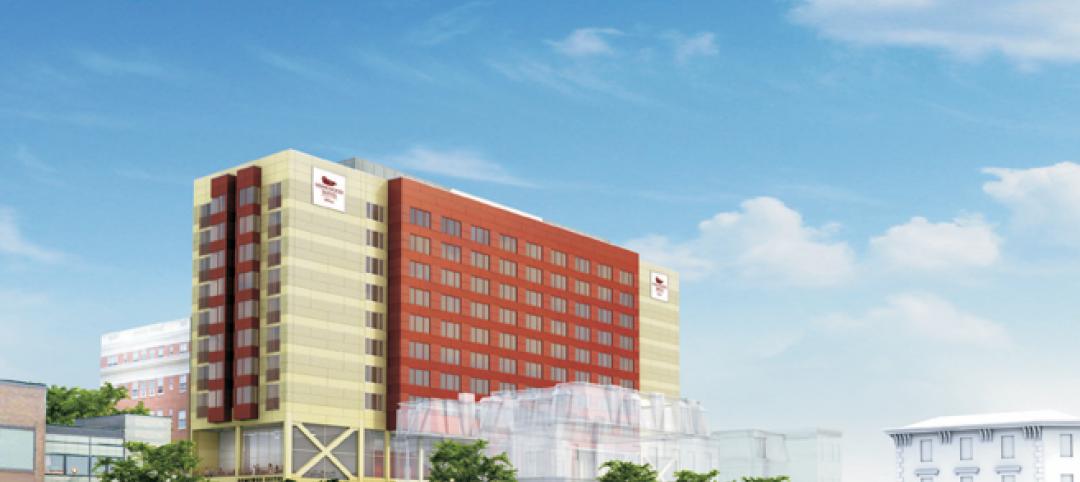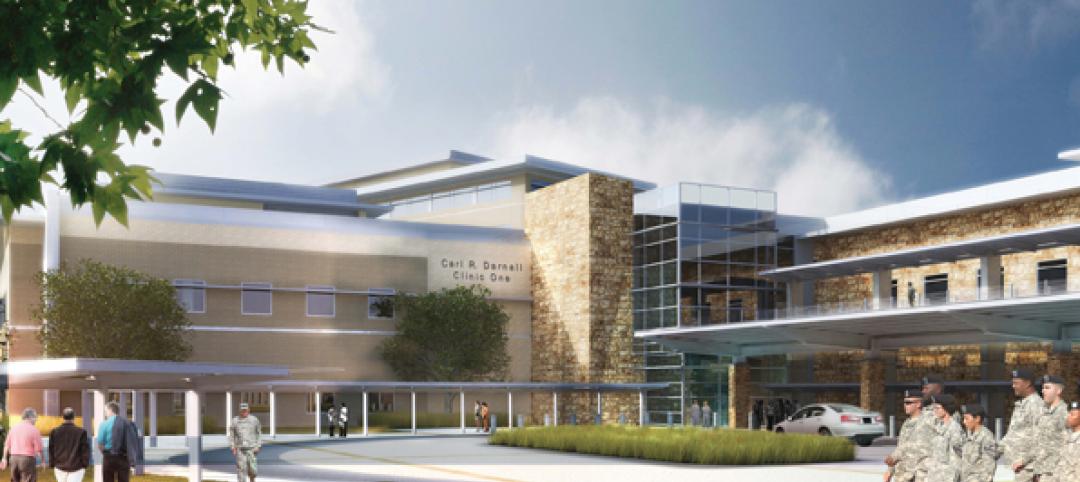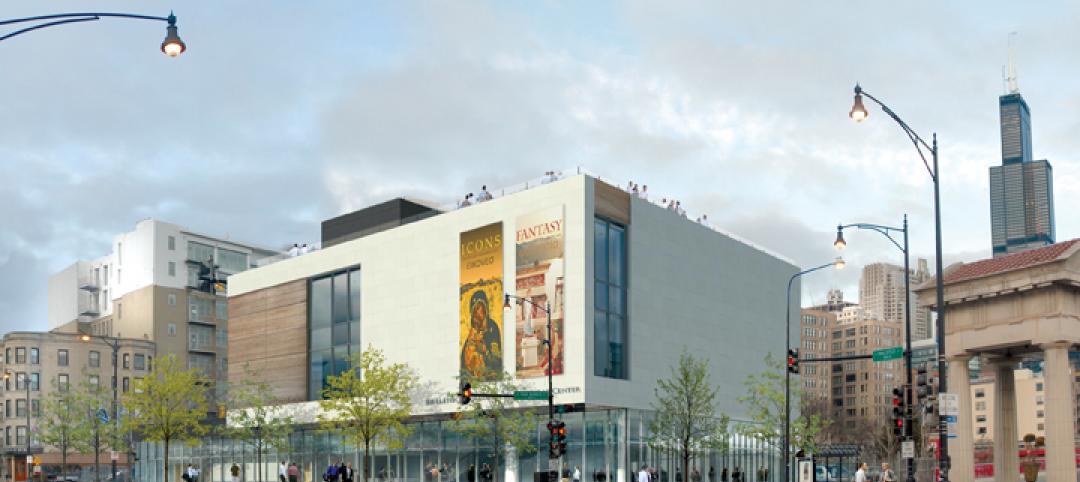Northglenn, Colo., a Denver suburb, has opened the new Northglenn City Hall—a net zero, fully electric building with a mass timber structure. The 32,600-sf, $33.7 million building houses 60 city staffers.
Designed by Anderson Mason Dale Architects, Northglenn City Hall is set to become the first municipal building in Colorado, and one of the first in the country, to achieve the Core certification: a green building rating system overseen by the International Living Future Institute.
The project boasts numerous sustainability features. Running entirely on electricity, Northglenn City Hall features 476 solar panels that are expected to generate at least as much energy as the building consumes annually. There are nine EV-charging stations, with eight more future-ready spots.
While the building’s timber structure reduces embodied carbon by 41%, about one-fifth of the building materials were sourced within 310 miles, helping to reduce CO2 emissions from transportation and shipping. In addition, 80% of construction waste was diverted from landfill.
As a result of the project’s emphasis on biophilic design, four-fifths of occupants have views of the outdoors and daylighting. Native plants reduce water use by over 70% compared to traditional landscaping, and the irrigation relies completely on non-potable water collected from rain and snow.
The project team deployed universal design principles to ensure individuals of all abilities feel comfortable and welcome in City Hall. The team also prioritized products with Declare labels, which Living Future describes as “a nutrition label for building products” that helps identify healthy materials and avoid harmful chemicals.
Northglenn City Hall’s community rooms can be reserved for public use, and its entry lobby, which showcases public art installations, can serve as a pre-function space for community events.
On the building team:
Design architect and architect of record: Anderson Mason Dale Architects
MEP engineer: The Ballard Group
Structural engineer: KL&A Engineers & Builders
General contractor: FCI Constructors
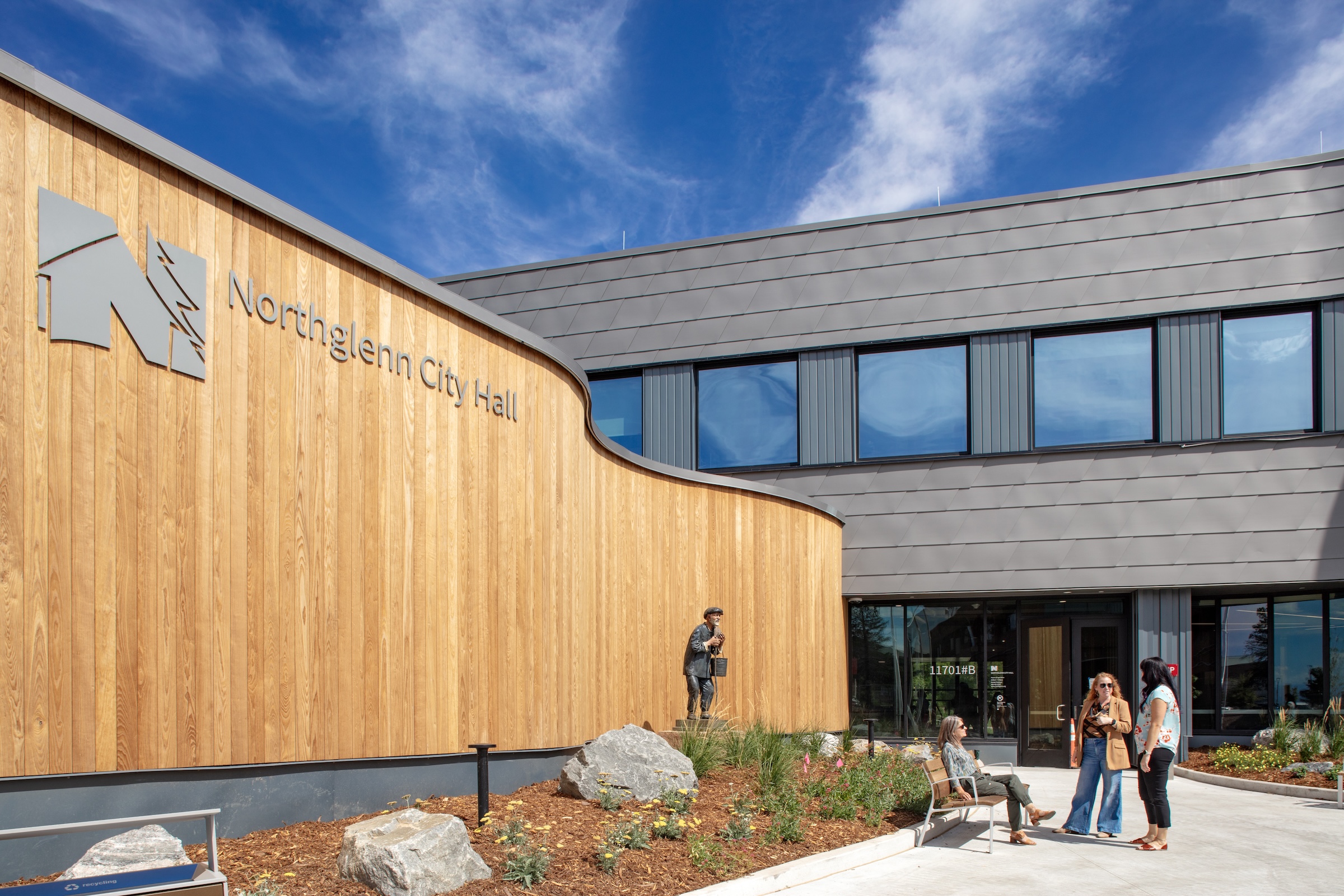
Here are additional facts about Northglenn City Hall:
- First CORE Certification: The building is set to become the first CORE-certified municipal building in the State and one of the first in the country.
- CORE Certification: Overseen by the International Living Future Institute, CORE is a green building rating system similar in ambition to LEED Platinum but emphasizes actual building performance over a checklist approach.
- Sustainable Materials: 20% of materials were sourced within 310 miles. The farthest-traveled material is the All-Wood Mass Timber Structure, from Quebec, Canada, saving 50% in embodied carbon.
- Material Transparency: Many products used “declare labels,” showing they are free from harmful chemicals.
- Embodied Carbon Savings: The carbon savings is equivalent to the carbon of 621 acres of forest for a year, or about 30 Northglenn Civic Center Campuses.
- Solar Power: The building features 476 solar panels generating 195 KW annually.
- Net-Zero Energy: It runs entirely on electricity with no natural gas, and the solar panels are expected to produce as much or more energy than the building consumes annually.
- High Efficiency: The exterior is highly efficient, with double-paned low-e coated glass and an R-Value of R-20.
- Sustainable Materials: The exterior uses Zinc and Thermally Modified Wood, which are natural, durable, and processed without harmful chemicals.
- Zero Fertilizers/Pesticides: The landscaping uses no petrochemical fertilizers or pesticides.
- EV Charging: Nine EV charging stations are installed with eight additional future-ready spots.
- Non-Potable Water: Irrigation uses 100% non-potable water collected from rain and snow.
- Water-Efficient Landscaping: Native and xeric plants reduce water use by over 70% compared to traditional landscapes.
- Nature Integration: The design incorporates natural elements to improve wellbeing, reflecting research on the health benefits of exposure to nature.
- Funding: The $33.7M for City Hall was in-hand before construction. The funding was generated by the .5% sales tax and the 4% Special Marijuana Tax, both of which can only be used for capital projects.
- City Services: The 60 city staff in the building provide services such as utility billing, permits and passports. Departments housed in City Hall include City Council, City Manager, City Clerk, Finance, Planning, Building, Economic Development, Human Resources, Parks/Rec/Culture Administration and Communications (which includes events and engagement).
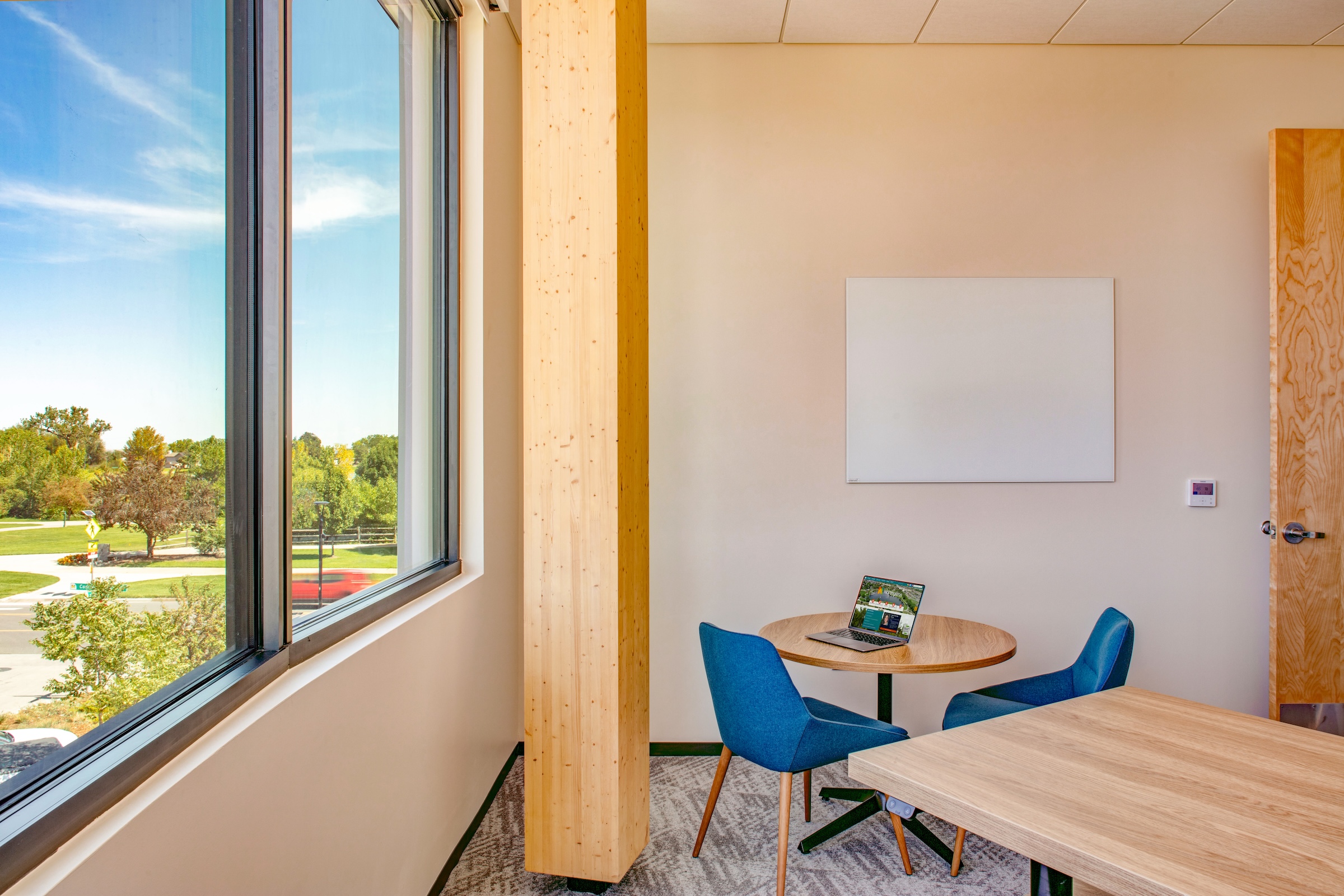
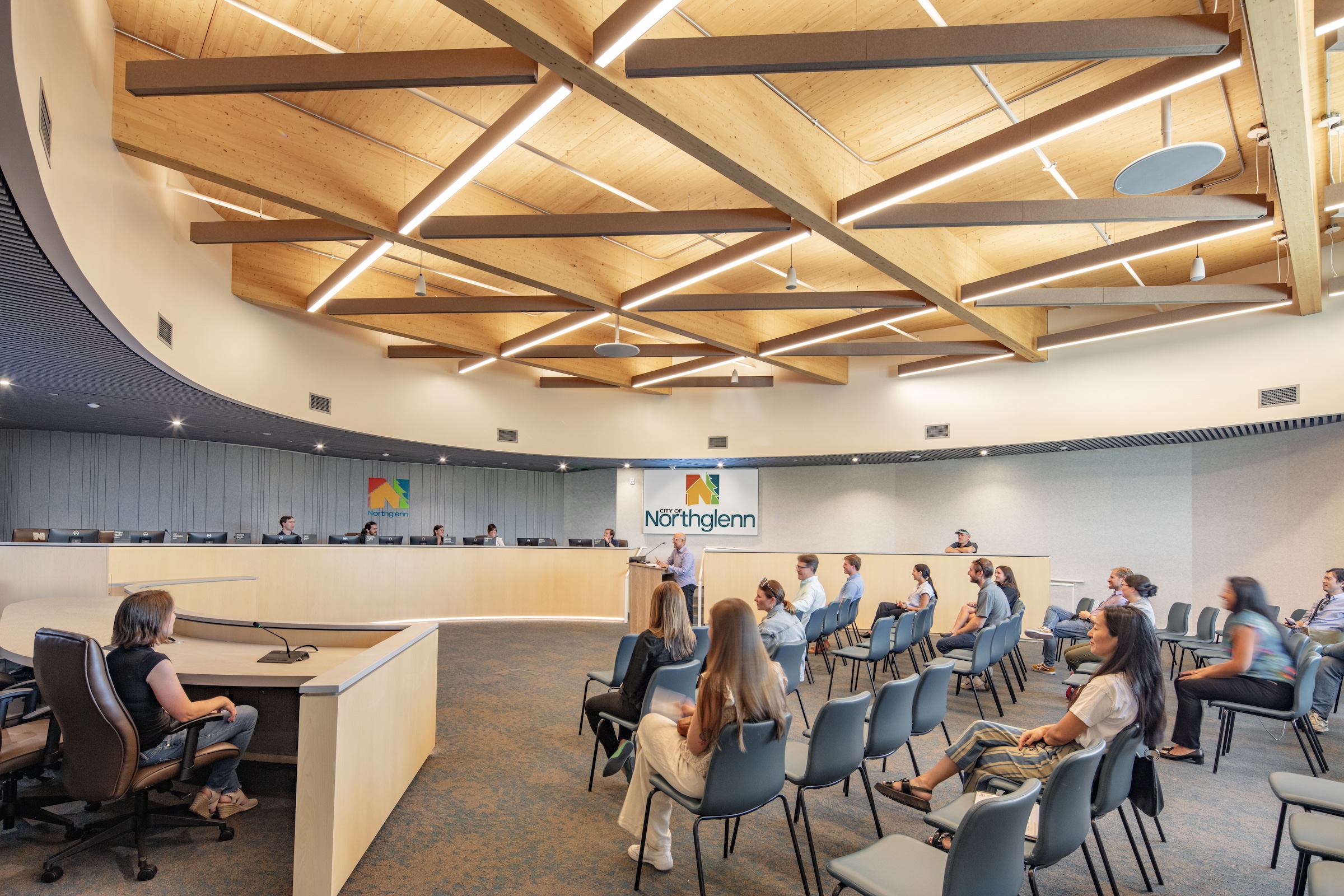
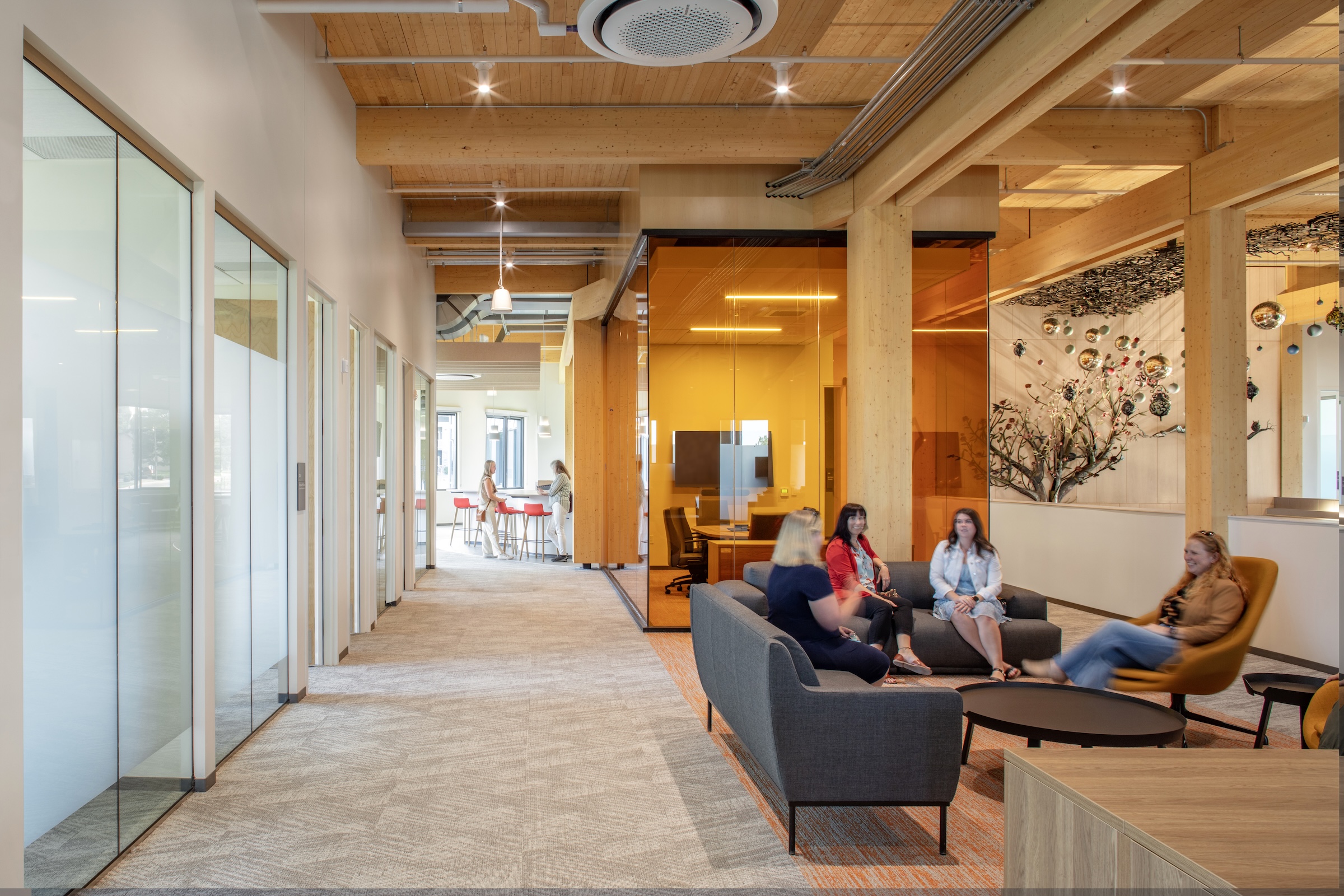
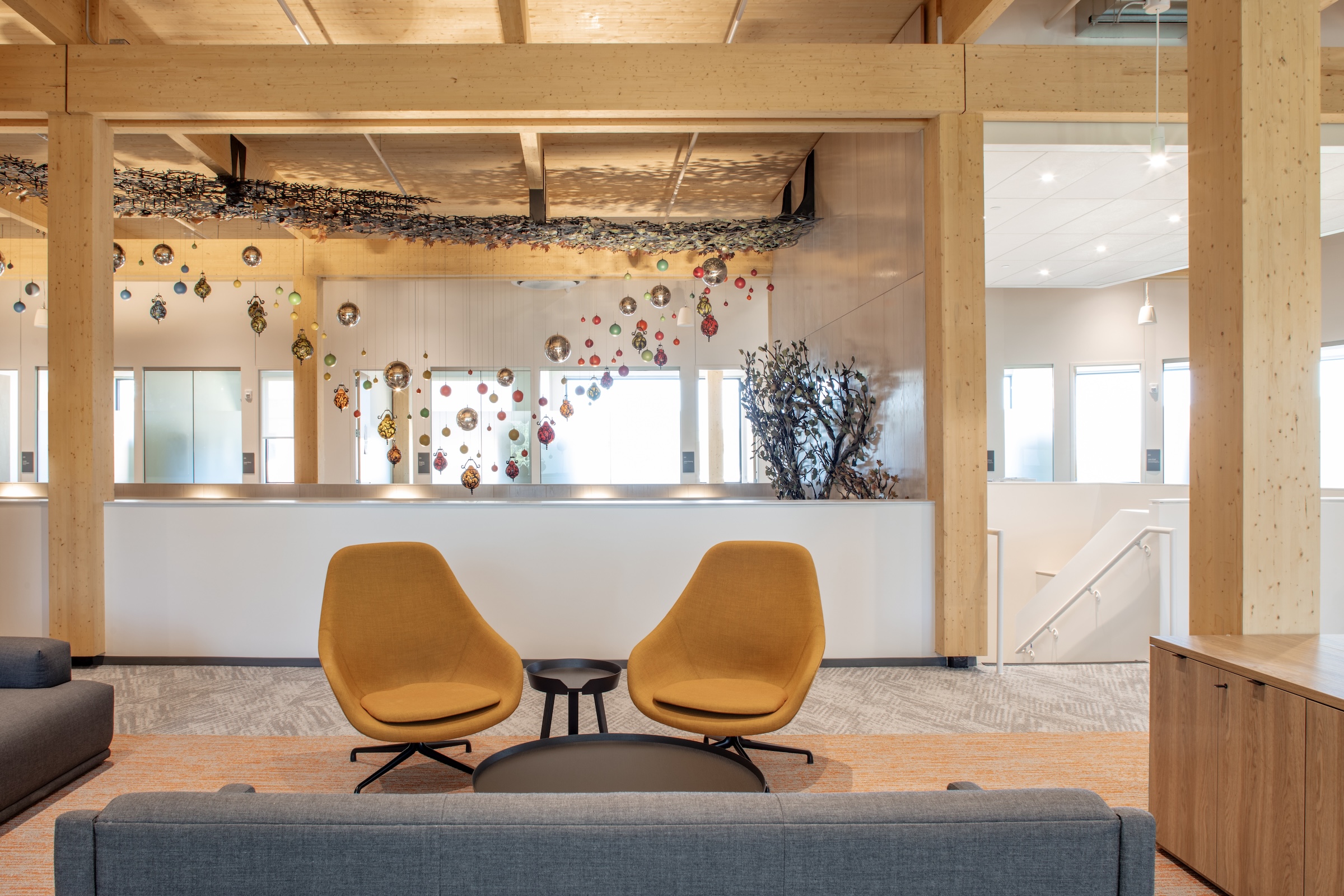
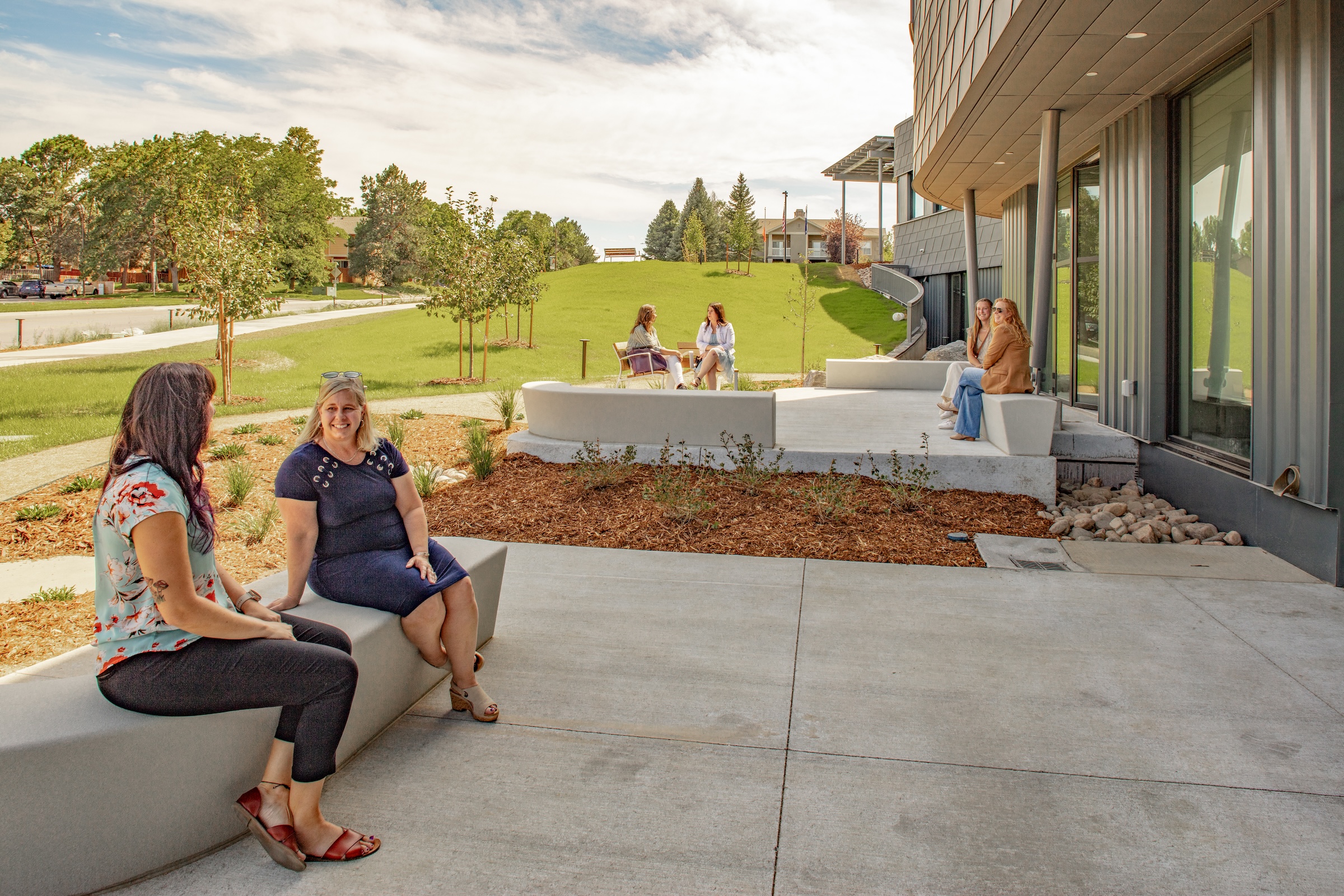
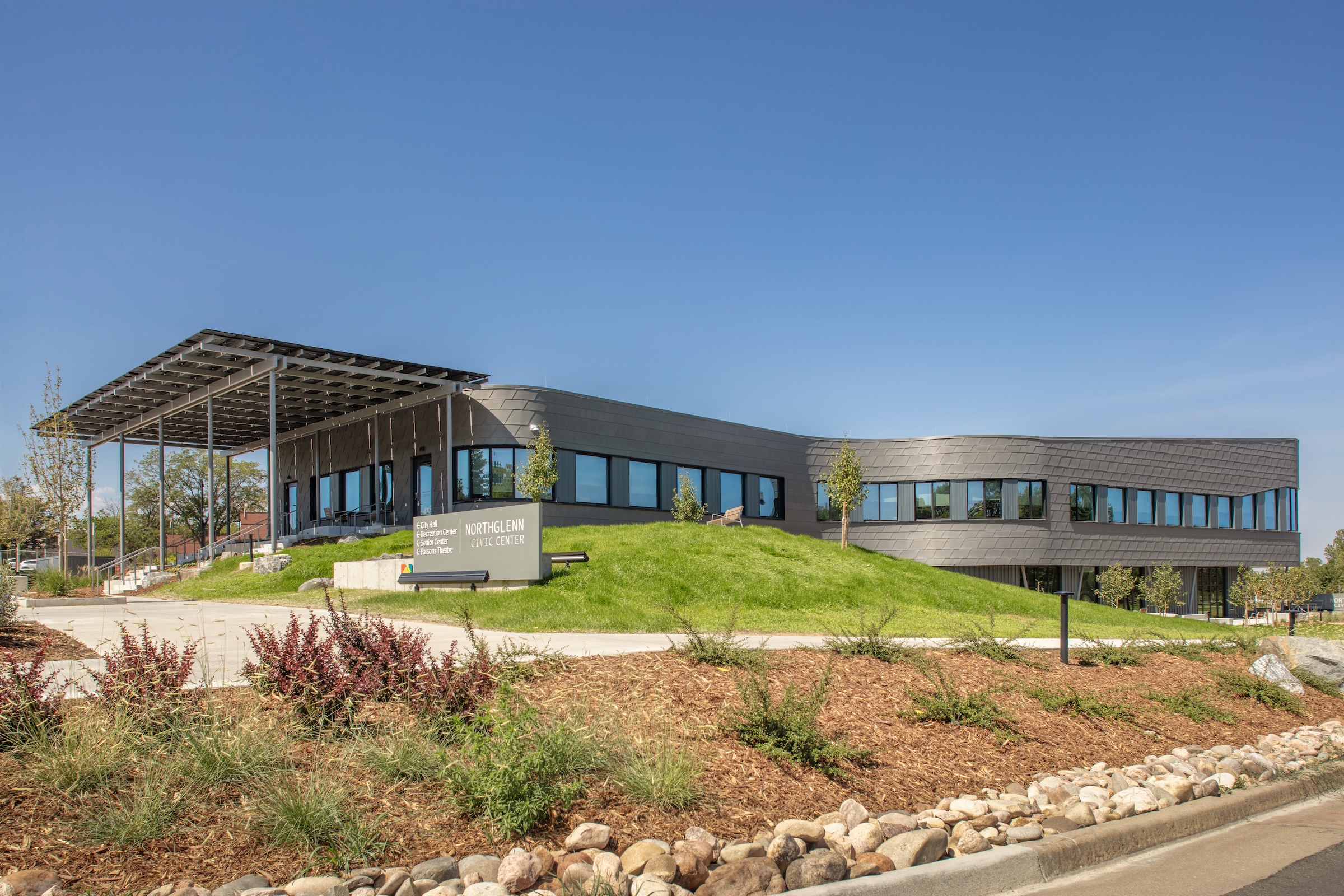
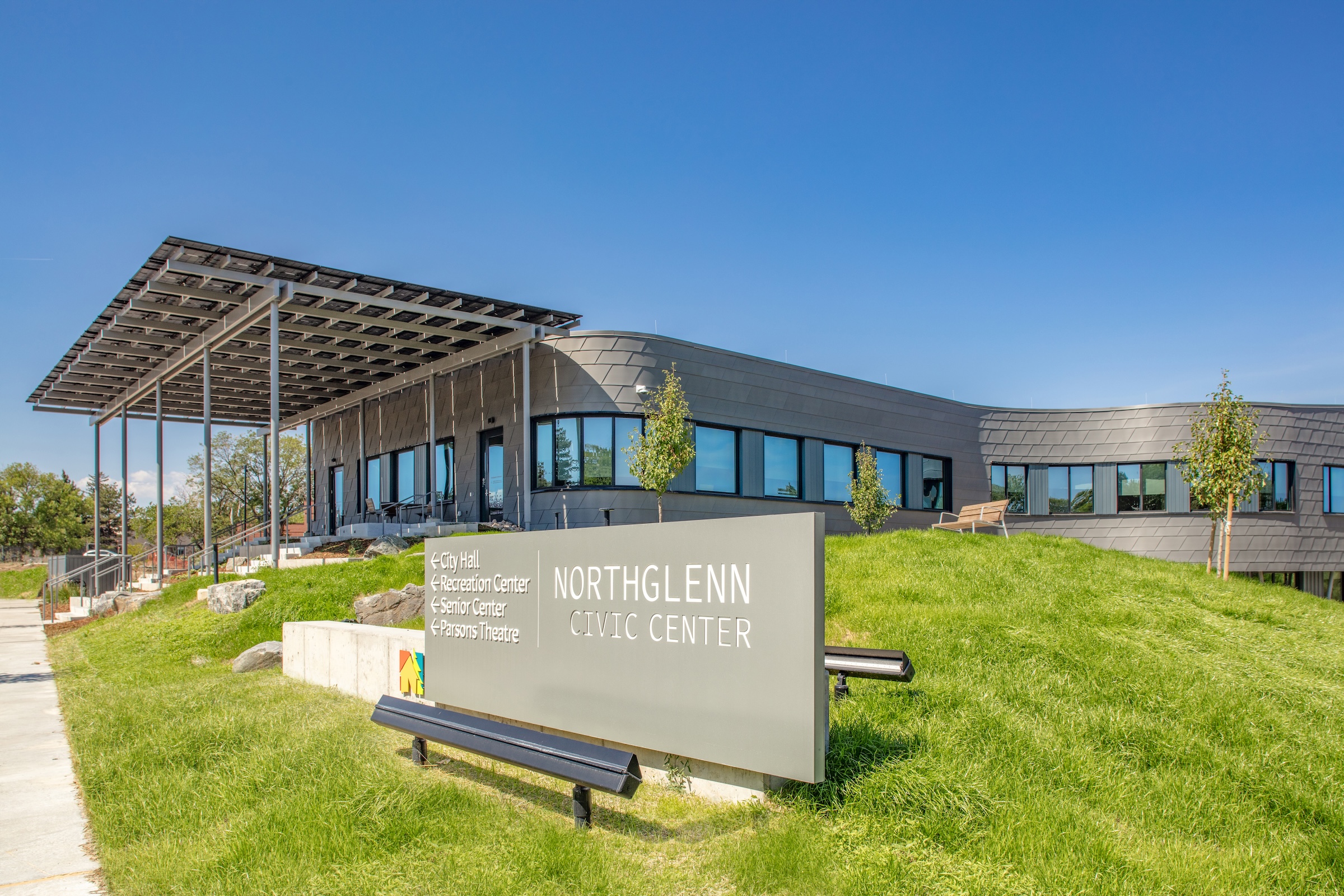
Related Stories
| Jan 21, 2011
Sustainable history center exhibits Fort Ticonderoga’s storied past
Fort Ticonderoga, in Ticonderoga, N.Y., along Lake Champlain, dates to 1755 and was the site of battles in the French and Indian War and the American Revolution. The new $20.8 million, 15,000-sf Deborah Clarke Mars Education Center pays homage to the French magasin du Roi (the King’s warehouse) at the fort.
| Jan 21, 2011
Virginia community college completes LEED Silver science building
The new 60,000-sf science building at John Tyler Community College in Midlothian, Va., just earned LEED Silver, the first facility in the Commonwealth’s community college system to earn this recognition. The facility, designed by Burt Hill with Gilbane Building Co. as construction manager, houses an entire floor of laboratory classrooms, plus a new library, student lounge, and bookstore.
| Jan 20, 2011
Construction begins on second St. Louis community center
O’Fallon Park Recreation Complex in St. Louis, designed by local architecture/engineering firm KAI Design & Build, will feature an indoor aquatic park with interactive water play features, a lazy river, water slides, laps lanes, and an outdoor spray and multiuse pool.
| Jan 20, 2011
Community college to prepare next-gen Homeland Security personnel
The College of DuPage, Glen Ellyn, Ill., began work on the Homeland Security Education Center, which will prepare future emergency personnel to tackle terrorist attacks and disasters. The $25 million, 61,100-sf building’s centerpiece will be an immersive interior street lab for urban response simulations.
| Jan 19, 2011
Extended stay hotel aims to provide comfort of home
Housing development company Campus Apartments broke ground on a new extended stay hotel that will serve the medical and academic facilities in Philadelphia’s University City, including the University of Pennsylvania and the Children’s Hospital of Philadelphia. The 11,000-sf hotel will operate under Hilton’s Homewood Suites brand, with 136 suites with full kitchens and dining and work areas. A part of the city’s EnergyWorks loan program, the project aims for LEED with a green roof, low-flow fixtures, and onsite stormwater management. Local firms Alesker & Dundon Architects and GC L.F. Driscoll Co. complete the Building Team.
| Jan 19, 2011
New Fort Hood hospital will replace aging medical center
The Army Corps of Engineers selected London-based Balfour Beatty and St. Louis-based McCarthy to provide design-build services for the Fort Hood Replacement Hospital in Texas, a $503 million, 944,000-sf complex partially funded by the American Recovery and Reinvestment Act. The firm plans to use BIM for the project, which will include outpatient clinics, an ambulance garage, a central utility plant, and three parking structures. Texas firms HKS Architects and Wingler & Sharp will participate as design partners. The project seeks LEED Gold.
| Jan 19, 2011
Museum design integrates Greek history and architecture
Construction is under way in Chicago on the National Hellenic Museum, the nation’s first museum devoted to Greek history and culture. RTKL designed the 40,000-sf limestone and glass building to include such historic references as the covered walkway of classical architecture and the natural wood accents of Byzantine monasteries. The museum will include a research library and oral history center, plus a 3,600-sf rooftop terrace featuring three gardens. The project seeks LEED Silver.
| Jan 19, 2011
U.S. Green Building Council Welcomes New Board Directors
The U.S. Green Building Council (USGBC) has announced newly elected officers and new directors to its 2011 Board of Directors, including Elizabeth J. Heider from Skanska; Kirsten Ritchi from Gensler; and Dennis Maloskey, from the Pennsylvania Governor's Green Government Council.
| Jan 10, 2011
Michael J. Alter, president of The Alter Group: ‘There’s a significant pent-up demand for projects’
Michael J. Alter, president of The Alter Group, a national corporate real estate development firm headquartered in Skokie, Ill., on the growth of urban centers, project financing, and what clients are saying about sustainability.


